Cooking Thai Curry with Coconut Milk
May 01, 2015
14 Comments
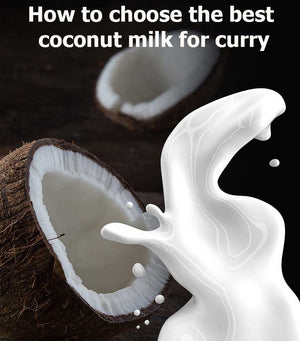
The most common problem that seems to crop in making Thai curries is this : "My Thai curry is too watery...". Well a few minutes reading this and I can promise you that will never happen to you! Coconut milk plays a big part in South-East Asian cooking but much less so in the UK and many other countries. A resulting problem with this is a lack of knowledge when it comes to choosing brands of canned Coconut milk; often the assumption is that one can of Coconut milk is much the same as another can of Coconut milk. Nothing could be further from the truth and to demonstrate this I went on a shopping trip to Tesco and Sainsbury and bought the following brands, I then checked to see how much coconut extract each can contained as you can see in the photo below.
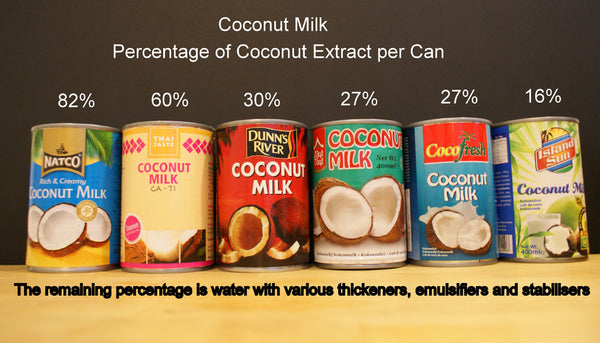
Now if you're making a Thai green curry for example, the Coconut milk will form a very large part of the dish. It's hardly surprising that the biggest problem people encounter when making a Thai green curry is that it turned out to be watery. That would certainly be the case with at least four of the brands in the picture. The ideal percentage of Coconut extract should be around 40%. That also rules out the "light" varieties that you see on supermarket shelves, great marketing ploy though, reduce the amount of Coconut extract and increase the amount of water and charge more for it!
Other brands you may encounter are Blue Dragon and Amoy at around 50-60 % Coconut extract. Be careful as they both produce “light” versions as well.
Another indicator of how good a particular can of Coconut milk is how few ingredients it lists on the can. The best ones will probably just read like "Coconut milk,Water,Citric Aid (antioxidant), some of the others will read like a shopping list from "Breaking Bad." Simple fact is that quality coconut milk doesn't need all the added emulsifiers,stabilisers and bulking agents that are added to the lesser quality milks.Additives like guar gum can have a disastrous effect on a Thai curry as the sauce reduces.
If you want to know which brand I prefer I would have to say none of the above. Don’t get me wrong, you can certainly make a good curry with any of the above brands that contain 40% or more Coconut extract. In fact for reasons that I will now try to explain you might even prefer a curry made with those brands rather than my preferred choice. And if all you want to do is make a good curry you now know enough about Coconut milk to go back to the recipe and start cooking ! Bear in mind though that if you've purchased a jar of something from the supermarket masquerading as a Thai curry paste, then there are limits to what even the best coconut milk can achieve.
For anyone who has stayed with me Chaokoh or Aroy-D are my preferred brands of Coconut milk and in Thailand I’m certainly not alone in this as these are easily the most popular brands.
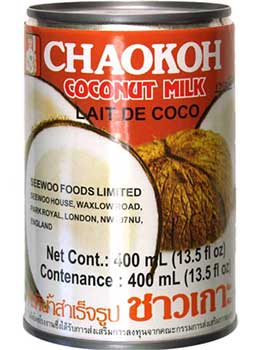
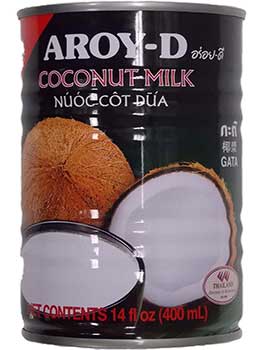
UPDATE. March 2022. Aroy-D now being stocked by both Morrisons and Sainsbury's in the UK.
So far I have only talked about the percentage of Coconut extract in these cans but there is more, much more to it than that. Coconut milk comes in different grades and the most prized grade is the first squeezed extraction of the Coconut meat. This is a thick creamy substance, remaining extractions are much thinner and less valued. In superior brands of Coconut milk the thicker creamier part of it will rise to the top of the can and if you don't shake the can you can literally scoop it off as in the picture below. What's left behind will be almost clear water.
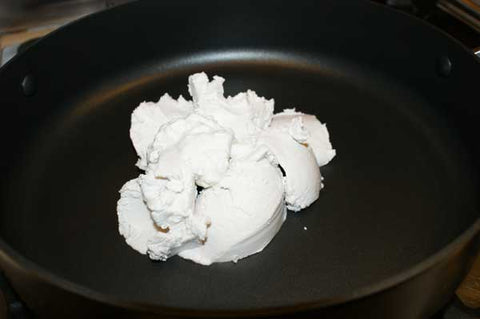
In Thailand when we are not making our own pastes we often buy them as fresh pastes in the market, as in the picture below.
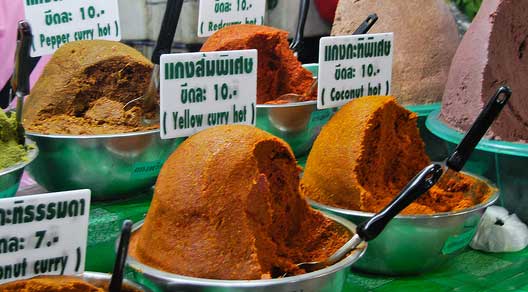
These pastes need to be cooked and we would do this by cooking the thick part of the Coconut milk (from now I'll call it Coconut cream and don't confuse that with the packets of Creamed Coconut you see on supermarket shelves) in a pan until the Coconut fat separates from the cream. For a Thai cook that separation is what they are seeking, the paste will now be added and cooked through to form the base of the curry. If we are able to do it successfully we need to use a brand of Coconut milk that contains no emulsifiers to hold it together because these would prevent the separation. That is one of the reasons why Chakoh & Aroy-D Coconut milk is popular in Thailand, it contains only Coconut extract and water with citric acid as a preservative.* (Update. Aroy-D sold in the UK now mostly seems to come from Indonesia and contains a stabiliser, still the best coconut milk available in supermarkets and far less additives than the rest.) But what us Thais also know is that if you add thickeners and emulsifiers and stabilisers to a thinner coconut milk it can look exactly like the one in the picture above. But because of those emulsifiers it won’t separate cleanly in the way we require. You're also not going to get the richness of the top-quality Coconut as you do with a brand like Chakoh or Aroy-D.
Now having explained all that I have to tell you that at least as far as the separation part of Coconut milk is concerned its not actually something you require if you're cooking with one of my curry pastes. I've already cooked them for you and the aroma of the fresh herbs is contained in the oil contents of the jar or pouch and will be released as you cook the paste. If you follow my recipe for the Thai green curry you will see that rather than separate the Coconut as above I actually pour the whole can in (or with an unfamiliar brand just start with half a can) , and that once again is because the paste has already been cooked. The reason why I still continue to use Chakoh Coconut milk even if I don't need it’s separation qualities is simply because it is a far superior product. I have also yet to meet anyone that I recommended it to, and who tried it ,who would disagree with that comment. In fact most of them now go out of their way to get it ! You can always find it in places like Chinatown in London and South-East Asian grocery stores. It's also available on Amazon and the prices including shipping for 6 or more cans are competitive with supermarkets. Also, currently, Sainsbury's own brand is not bad at all, but I'm always cautious about own brands as they sometimes switch suppliers as Waitrose did a while back with disastrous results. I recently did a taste test with a number of brands, tasting the coconut milk without cooking with it, and Waitrose Organic Coconut Milk came last out of some very poor competition. You’re basically being had, you could never get away with selling this stuff in Asia. Talking of Asia, another place to look for good coconut milk can be a good local Asian shop if you have one local to you.
Other brands commonly seen in supermarkets that I avoid are Thai Taste (it doesn’t) Amoy, Blue Dragon, too many additives. Biona is nice but too thin for curry, great for soups or Laksa though.
Now remember I said you can still make a very good Thai green Curry with a brand that contains at least 40% Coconut extract and you might even prefer it to a brand like Chakoh. This is the reason; the picture on the left is whether Curry has been cooked with Chakoh and separated, just the way we Thais like it ! The curry on the right has been cooked with the Coconut milk that contains emulsifiers which is why we're seeing little globules of oil.
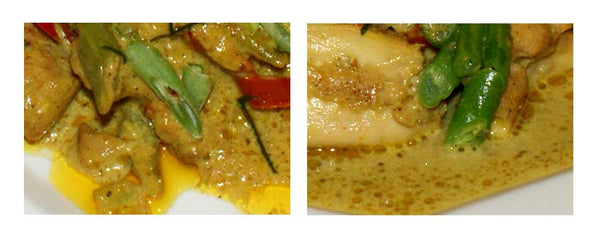
Quite often in Thai restaurants they will use a brand of coconut milk that separates and then skim off the oil. Maybe that is to the Western taste, we are Thai and we like to please ! This is all a matter of personal taste, you can do it that way too. Just remember that if you cook a Thai green curry and the oil separates you haven't ruined the dish, you have actually cooked it the way it is supposed to be.
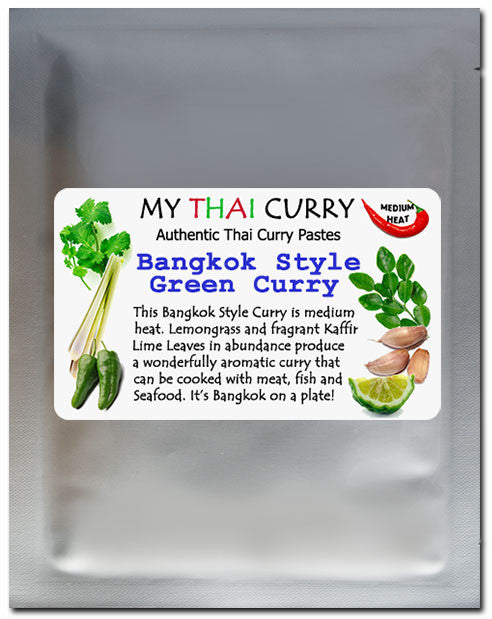
14 Responses
Leave a comment
Comments will be approved before showing up.









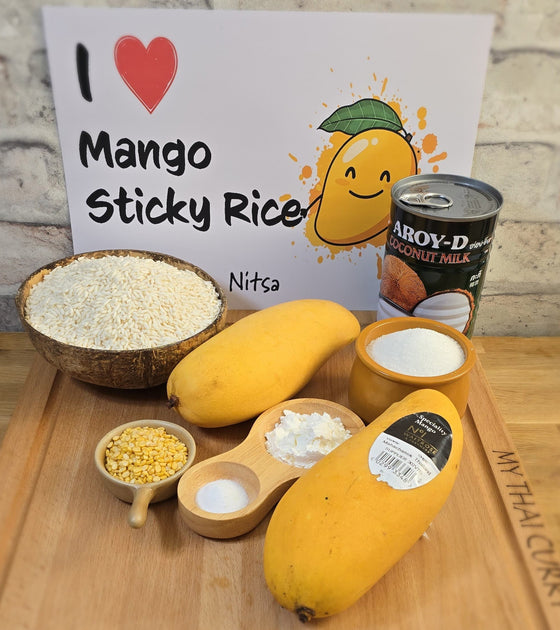
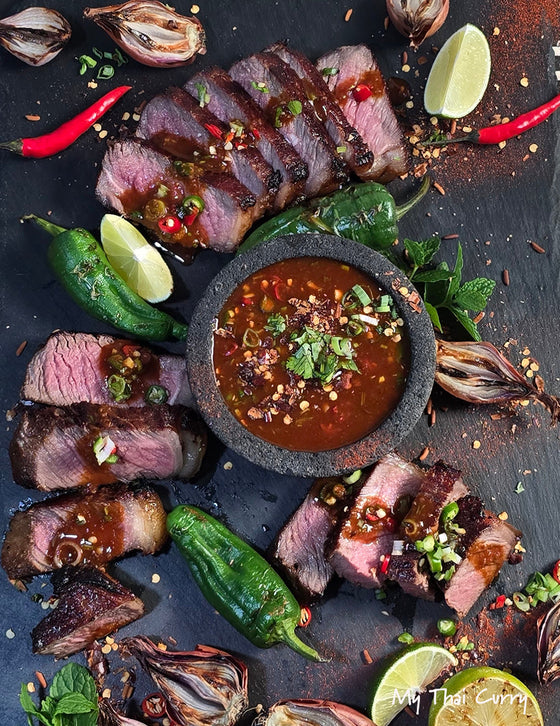
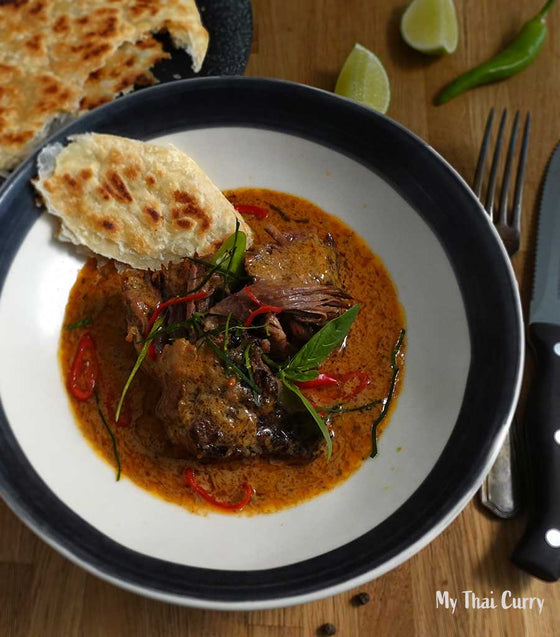
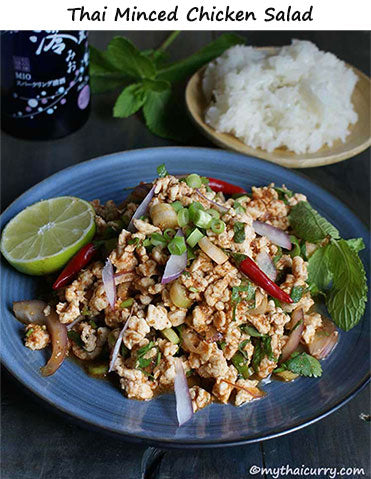




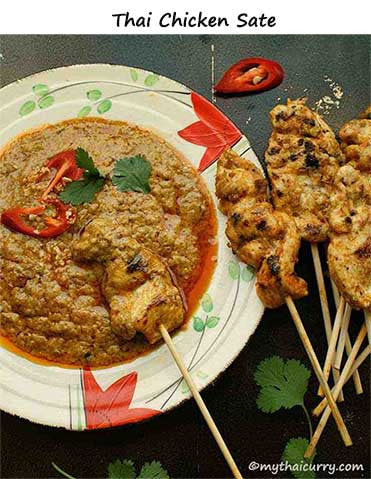
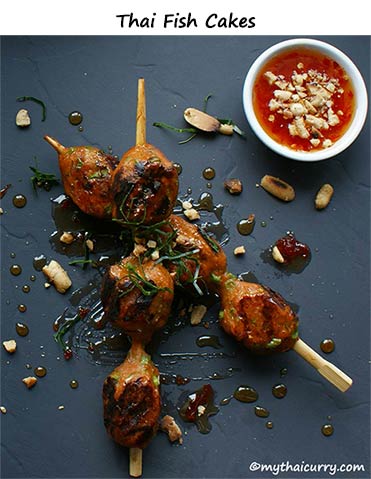
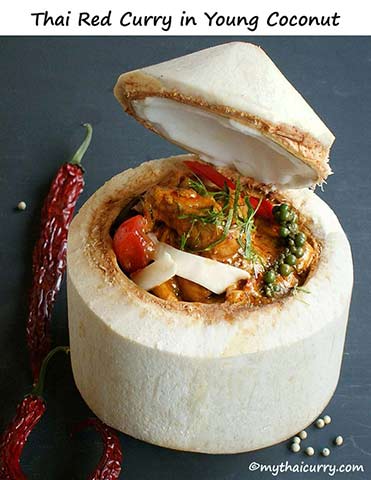




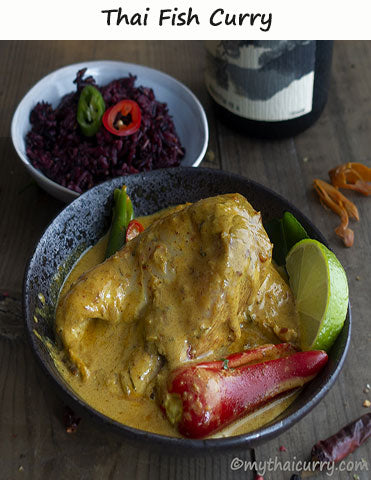
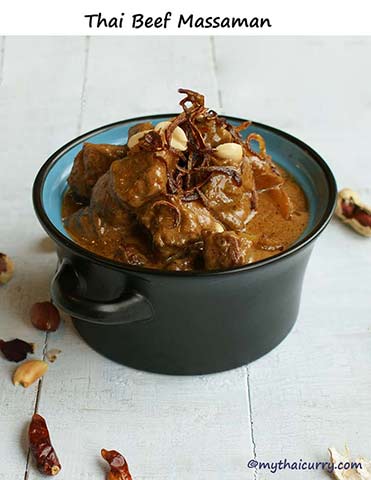


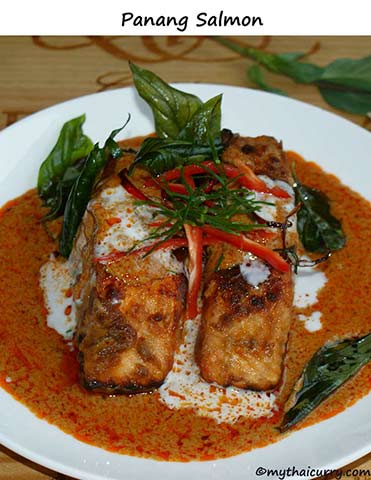

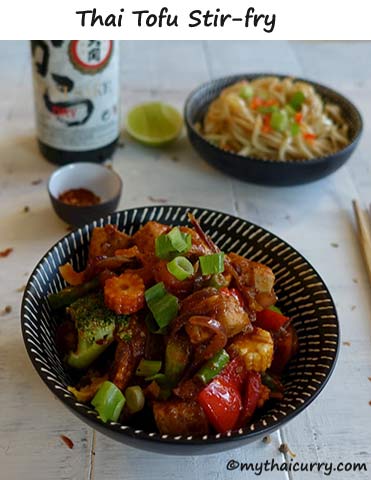
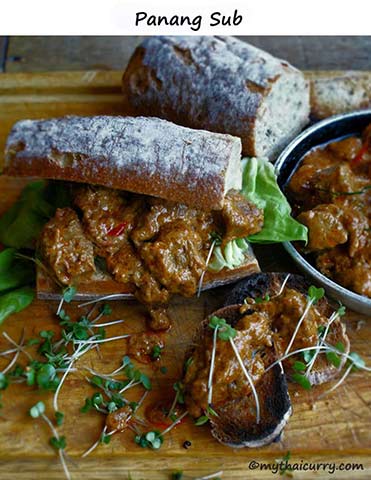



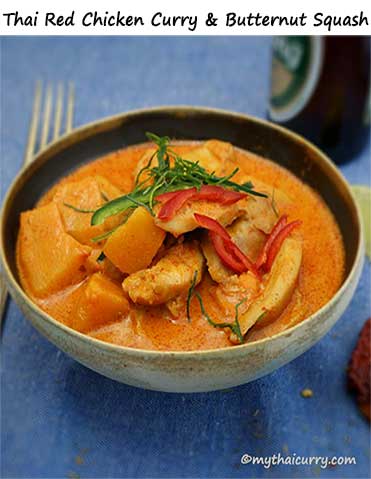

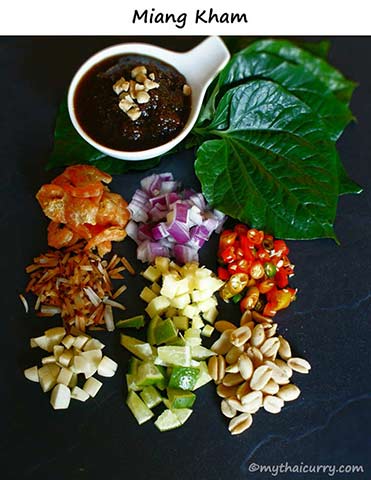


Michelle Sharma
June 19, 2025
Do they stay separated? What happens when you stir? If you add chilli/spices won’t they go into the sauce not the oil?